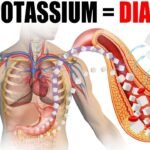Table of Contents
Do you feel like your metabolism is working against you? You’re not alone. Millions struggle with weight loss because traditional diets often backfire, slowing down your metabolism and making it harder to keep the weight off.
Imagine a way to lose weight that actually supports your body’s natural processes.
What if I told you there’s a better way?
Keep reading to discover how to unlock your body’s fat-burning potential and finally achieve lasting weight loss.
Brief The Article:
Why is it hard to lose weight and keep it off?
- The Problem: Most diets focus on calorie restriction, which can backfire. When you severely restrict calories, your body adapts by becoming more efficient at using fuel. This means your metabolism slows down to conserve energy.
- The Solution: Instead of focusing solely on calorie restriction, consider approaches that don’t drastically slow down your metabolism.
What’s the real issue?
- It’s not a slow metabolism, it’s enhanced metabolic efficiency. Your body is really good at holding onto fat because it’s adapted to survive.
What are some better approaches to weight loss?
- Intermittent Fasting: This involves cycling between periods of eating and fasting. It can help your body tap into fat stores for fuel and may be more sustainable than constant calorie restriction.
- The Ketogenic Diet: This involves drastically reducing carbs and increasing healthy fats. It can help your body shift to burning fat for fuel more efficiently.
- Metabolic Confusion Diet: This involves alternating between periods of lower and higher calorie intake. It might be a good starting point for some people.
Important Considerations:
- Nutrient Intake: Make sure you’re getting enough nutrients, even when restricting calories.
- Sustainability: Choose a lifestyle change you can stick with long-term.
- Individual Needs: What works for one person might not work for another.
Key Takeaways:
- Don’t just focus on calorie restriction.
- Consider approaches that support metabolic health.
- Find a sustainable approach that works for you.
So let’s dive into the details…
Metabolism and weight loss
The Struggle with Dieting and Weight Loss

Now why is it that most people that start a diet cannot stick to it and why is it that those who lose the weight regain it back and then some?
Our bodies tend to resist when you start restricting food and calories and going on a low carb diet. You know most diets out there do involve lessening of the calories. I don’t know of any diet that increases your calories.
But when I was in practice I would always ask a person who has difficulty losing weight what happened in your history, when did it start and this this is what they told me over and over and over again:
they would start a diet, lose the weight, gain it back and one for one those people who did the most diets have the most difficult time losing weight.
In other words, the more diets that they do, the slower the metabolism or they might have this apparency of a slow metabolism.
Key Points
- Most people struggle to stick to diets
- Weight is often regained after dieting
- More diets often lead to slower metabolism
I’ve never had an overweight person tell me that they can lose weight easily, they just need to do the right things.
The great majority of the time that they don’t attempt to lose weight is because it’s very difficult, they don’t see results. That’s where the problem is.
Do diets slow your metabolism?
The Efficiency of Metabolism

So is it actually true that diets slow your metabolism? Well, this is a very interesting topic because when you restrict energy from the body in calories and you lose fat, the body will compensate and the metabolism becomes more efficient.
What does this word efficient mean? It can run on smaller amounts of fuel just like a car. You have different cars that are of a different efficiency; those cars that can take the same amount of fuel and go longer are more efficient, they’re not gas guzzlers.
Well, in the body, it’s the same thing. If you have a difficult time losing weight because you’ve dieted for many many years, your body is probably compensated for survival purposes because dieting is similar to famine or a little bit like starvation and I’m mainly talking about the lowering of calories.
Key Points
- Metabolism becomes more efficient with calorie restriction
- Body compensates for survival during dieting
- Efficient metabolism can run on less fuel
But what’s really going on if we want to isolate the real problem? A person that is struggling with weight loss doesn’t really have a slow metabolism, they have an enhanced metabolic efficiency problem.
They don’t waste energy very easily, they can run just on a little bit of energy.
The Survival Perspective on Metabolism

So is this really a bad thing? Well, yeah, it’s kind of a bad thing from the person’s perspective but from a survival standpoint, it’s really an enhanced survival capacity. Those people that have a slower metabolism have more survival long term.
It’s interesting to me how so many people are you know pushing “well you have to lose weight you have to lose weight”.
This is just a side note and I don’t want to get into this but it’s really interesting those people that are overweight actually believe it or not might not be as unhealthy as you might think.
Now I’m not talking about the person eating a lot of junk food, I’m talking about those people that eat healthily and they still overweight. If we compare those to a skinny person who eats poorly, that skinny person has less of a survival capacity.
Key Points
- Efficient metabolism can be beneficial for survival
- Overweight doesn’t always mean unhealthy
- Skinny with poor diet may have less survival capacity
So many times um people don’t change their diet because they say “I don’t have a weight problem” so we always associate weight with being unhealthy. We don’t associate being overweight with a very efficient metabolism.
Calorie restriction
The Effects of Calorie Restriction

So that’s the topic for today. I want to talk about it, I want to do a deep dive into this because if you end up solving the wrong problem – slow metabolism – with things that maybe might stimulate your metabolism, you might end up burning your metabolism out.
But I think for the majority of the population it’s not a slow metabolism, it’s just a very efficient metabolism.
So I want to focus on calorie restriction. I want to talk about that. There’s a lot of data on calorie restriction but I’m going to give you a little summary on what it talks about.
People that restrict the calories are more susceptible to being deficient in nutrients which can then affect the hormone system.
I mean just let’s take one example: The Biggest Loser. Years ago they had the show The Biggest Loser and these people very very dramatically lost a ton of weight and they had to do some serious calorie restriction and exercise.
Well, we know now the bad effects that that created. Every single one of these people gained the weight back and and more, but those people who lost the most weight had the lowest metabolism.
So it kind of screws everything up, it’s like it just makes it really hard to lose weight from then on out.
Key Points
- Calorie restriction can lead to nutrient deficiencies
- The Biggest Loser example: weight regain and lowered metabolism
- Adaptive thermogenesis: body adapts to lower calorie intake
Another term for this is called adaptive thermogenesis where your body is adjusted or adapted to these lower amounts of calories and now just burns fat less because it’s more efficient.
The Minnesota Starvation Experiment
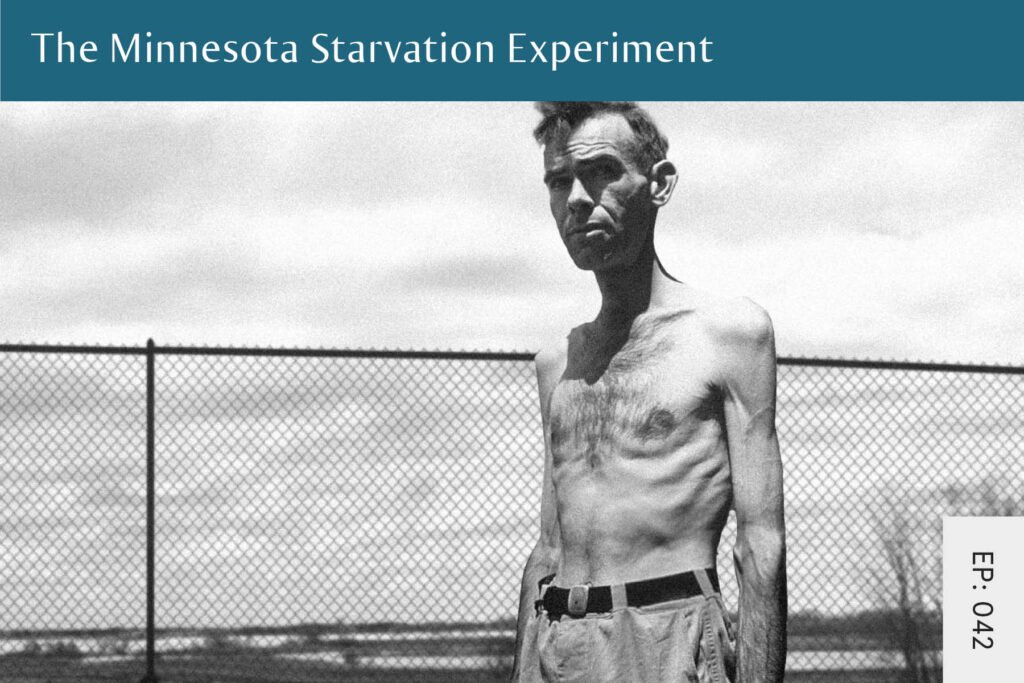
Now there was another interesting experiment called the Minnesota starvation experiment. This experiment involved a group of men going on a very low calorie diet.
So they had 32 normal men, went 24 weeks on a semi starvation diet and then 12 weeks on a restricted refeeding diet and then 8 weeks they can pretty much eat on anything they want.
The results were similar to the experiments on mice where you’re forcing the machine to conserve energy as it’s trying to deal with this starvation and found that the metabolism was suppressed by like 15.5%.
But they had rebound hunger, they regained the weight quickly and some had a higher level of weight gain than others beyond the original starting weight.
Key Points
- 32 men on semi-starvation diet for 24 weeks
- Metabolism suppressed by 15.5%
- Rebound hunger and weight gain observed
Intermittent fasting vs. calorie restriction
Comparing Intermittent Fasting and Calorie Restriction

So now what about intermittent fasting? Okay, how does that compare with calorie restriction? Well, when you lower calories, the person usually has more hunger and they have more cravings.
When you do intermittent fasting correctly, you’re less hungry and you don’t have the cravings.
When we’re talking about intermittent fasting, I mean the problem is there’s so many different types of intermittent fasting but the bottom line is that if you do intermittent fasting without restricting the calories,
you’re going on a period where you’re eating nothing for a while versus just going on a period where you’re eating lower amounts of calories and there’s some very unique benefits to just doing intermittent fasting and not doing calorie restrictive type programs.
So out of the 27 trials that I looked at, 18 were randomized control trials and pretty much in all the studies they all lose weight. There were no serious Adverse Events, most of the weight which was lost was actual fat loss, most of the people lost weight in the midsection.
Five of the studies which included not just obesity but also diabetes had improvements in blood sugars.
Key Points
- Intermittent fasting leads to less hunger and cravings
- 27 trials showed weight loss with intermittent fasting
- Fat loss, especially in midsection, and improved blood sugar observed
Traditional diets vs. keto diets
The Benefits of Ketogenic Diet with Intermittent Fasting
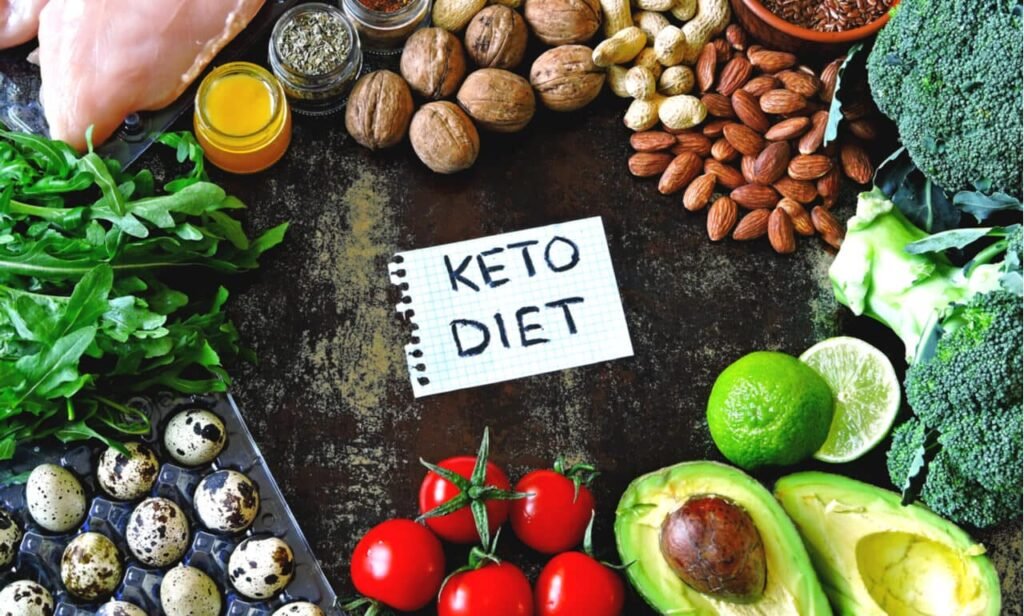
Now I will say that some of the studies involving calorie restriction did not show negative effects, okay, because again there’s variables with that as well
I think it has to do with what type of calories you’re consuming and if you have enough nutrients with those calories
because when we talk about calorie restriction it doesn’t necessarily define the quality of those calories which make sense from pure logic is that if you’re consuming less nutrients you’re going to create more negative effects with you know health and body function.
But what if you did calorie restriction with all the nutrients? Okay, I’d like to see that study probably show a lot better results. But regarding intermittent fasting,
periods of time where you’re not eating and then you’re eating, I always recommend with that doing the healthy version of the ketogenic diet
we don’t create imbalances in the body because one of the problems with calorie restrictive diets as well as intermittent fasting is are you getting enough requirements in your fatty acids or your amino acids? If you are you’re going to have a lot less problems.
But here’s the big thing about intermittent fasting that’s different than calorie restrictive diets and I’m speaking in a generality:
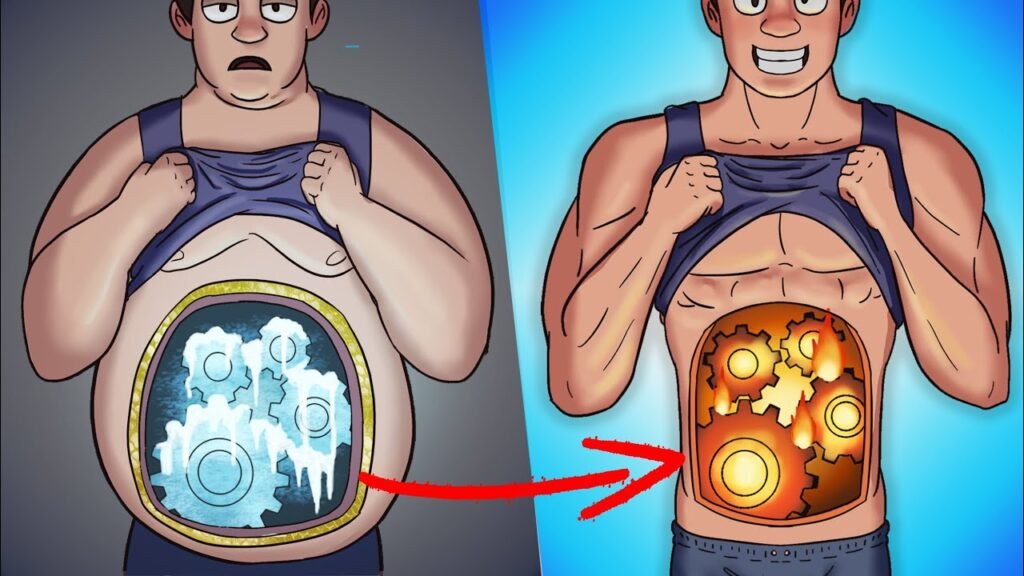
when you do intermittent fasting you adapt your body to running on ketones which is basically a situation where you’re burning your own fat.
So even though you might be indirectly reducing the amount of calories by eating less the meals because you’re going from three meals to two meals or even one meal it’s hard to eat all those calories in one meal what you have to realize is a portion of that fuel that you get in those dietary calories is not coming from the diet a portion of that fuel is coming from the person’s own fat fuel.
Key Points
- Ketogenic diet with intermittent fasting prevents nutrient imbalances
- Intermittent fasting adapts body to run on ketones
- Fuel comes from both dietary calories and body’s fat stores
Whereas if you do calorie restriction without going on low carb that could easily be a situation where you’re not able to tap into your own fat,
you’re tapping into your own muscle because your carbs are too high and your insulin’s too high. In the presence of insulin you can’t tap into the fat. So if you were to do a low calorie diet I would highly recommend you go low carb.

You have to also look at how much of your own fat is being mobilized and just so you know there are nutrients in your own fat that are stored that then are released like even vitamin D anything fat soluble like the fat soluble vitamins can be released into the system to provide for more nutrition as well as energy fuel.
But I don’t even look at the combination of the healthy version of the ketogenic diet with intermittent fasting as a diet because you can easily do this as a long-term lifestyle change where it doesn’t even feel like a diet.
There’s a lot of flexibility with the types of food that you’re eating but the main thing is you’re not hungry going into it, you don’t crave anything which makes it very sustainable and it even helps your sympathetic nervous system so you have less stress.
Understanding Set Point and Insulin Resistance
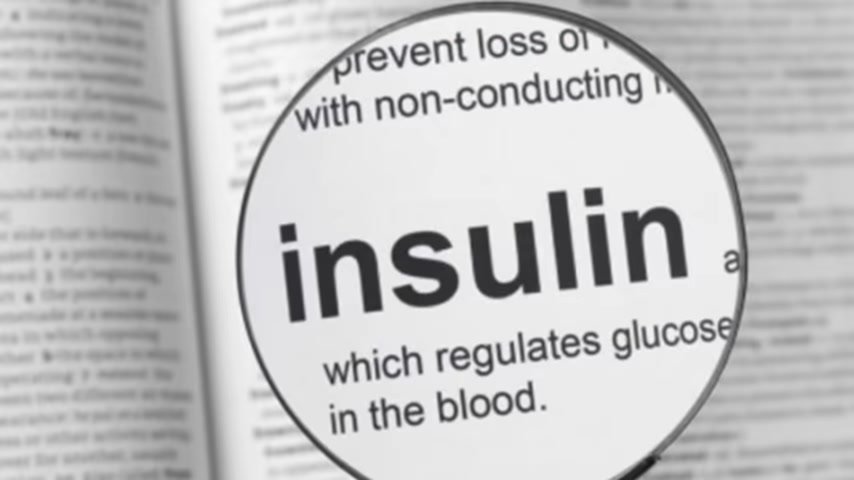
And another big thing that it will help you with is there’s something called a set point which is kind of a very comfortable weight that your body tends to settle in that you can’t seem to go below.
It likes to gravitate into that range let’s say for example it’s I don’t know 170 or 165 or 180 whatever right that’s where you’re at and you just can’t seem to get below it you might lose weight but you always kind of hit this Plateau they call it.
There’s some interesting data that relates to the amount of insulin that you have in your bloodstream and that set point so this relates to something called insulin resistance.
So if you have insulin resistance chances are you have greater amounts of fasting insulin. Insulin is a fat-storing hormone and if you have diabetes
for example or some people that are overweight that aren’t eating healthily they usually have a higher fasting insulin right which is rarely tested that can be the thing that is controlling your set point and not allowing you to go lower.
Key Points
- Set point: comfortable weight body settles into
- Insulin resistance related to set point
- Higher fasting insulin can control set point
And I think the set point does relate to this very efficient metabolism adaptation problem and when you’re in ketosis by the way initially at least your body wastes a lot of fuel you’re peeing out ketones
you’re breathing out ketones those are chunks of fat your body is wasting it’s less efficient with the fuel and also in the little mitochondria the factories that make energy you’re producing more energy from those ketones.
Metabolic confusion diet
Understanding the Metabolic Confusion Diet

I also want to mention this other new diet out there it’s called the metabolic confusion diet. What is that? It’s not necessarily a calorie restrictive diet as much as you’re going on a low calorie diet.
You are lowering your calories to a certain degree maybe 1,700 but usually it’s not really really low maybe it might go down to 1,200 but you’re doing that for a few days
and then you’re actually increasing the calories higher so you might be in like 4 days of 1,700 calories right and then you go on 3 days of 2700 calories that’s called the metabolic confusion diet.
Now what’s interesting about that diet and just from the research that I saw there’s doesn’t seem to be the same bad effects as a low calorie diet it doesn’t seem to slow down your metabolism
and people like it because it’s more flexible it’s not as restrictive so some people kind of do this for the whole week they go on a lower calorie but then in the weekends they kind of do what they want.
Key Points
- Alternates between low and high calorie days
- Doesn’t seem to slow down metabolism
- More flexible and less restrictive
Now for some people that may work I mean it’s a step up and if if you’re starting out and you look at the ketogenic diet and this intermittent fasting is being very difficult
and you can’t do it why don’t you try the metabolic confusion diet and it’s not intermittent fasting but the problem is that there’s not a lot of long-term data to know if it does eventually cause your metabolism to be downgraded
but at the very least I think it’s not restricting nutrients you won’t end up with a nutrient deficiency and it’s probably enough calories where it doesn’t send signals to your brain to slow down the metabolism
and maybe you do that for a while until the point where you can graduate into the healthy version of the ketogenic diet with intermittent fasting or even one of those two.
Learn more about the best diet for stubborn weight!
Conclusion: Understanding Your Metabolism
And the big thing I want you to get out of this topic is that it’s not that you have a slow metabolism you have an enhanced metabolic efficiency and once you get the right problem then you can come up with the right solution.
So if you really want what I think is the best solution for this I would recommend learning how to do the basic Keto Plan from this topic right here check it out.
Key Points
- Enhanced metabolic efficiency, not slow metabolism
- Ketogenic diet with intermittent fasting as a potential solution
- Understanding your metabolism is key to successful weight management
Additional-resources
- Effects of Intermittent Fasting on Health, Aging, and Disease
- Adaptive thermogenesis in humans
- Metabolic adaptation to weight loss: implications for the athlete
- https://pubmed.ncbi.nlm.nih.gov/11430776/
- https://pubmed.ncbi.nlm.nih.gov/19660148/
- https://pubmed.ncbi.nlm.nih.gov/17260010/
- https://pubmed.ncbi.nlm.nih.gov/30321282/
Summary
- Dieting is similar to famine. If you have difficulty losing weight because you’ve dieted for many years, your body is likely compensating for survival purposes.
- You don’t have a slow metabolism—you have an enhanced metabolic efficiency. Once you understand the right problem, you can attack it with a better solution.
- People who restrict calories are more susceptible to nutrient deficiencies, which can affect their hormones. Your body can also adapt to lower amounts of calories, causing it to burn less fat, making it harder to lose weight.
- Intermittent fasting differs from calorie restriction for a few reasons. When done correctly, you have less hunger and fewer cravings with intermittent fasting. Intermittent fasting also has unique health benefits that you can’t get with a calorie-restrictive diet.
- It’s important to do the Healthy Keto® diet along with intermittent fasting so you don’t create imbalances in the body.
- You also adapt your body to run on ketones when you do intermittent fasting. This is a situation where you’re burning your own fat. Even though you might indirectly reduce your calories by consuming fewer meals, your body still burns fat fuel.
- If you do calorie restriction without going low-carb, you could easily find yourself in a situation where you can’t tap into your fat. Instead, you may tap into your muscles because your carbs and insulin are too high. If you have high insulin, you can’t burn fat.
- I don’t consider the Healthy Keto plan and intermittent fasting a diet because you can easily do this long-term. This is a lifestyle change that doesn’t even feel like a diet.
- Healthy Keto and intermittent fasting have incredible benefits to support your health and weight loss. But, if you find it difficult to do the Healthy Keto diet, you may want to try the metabolic confusion diet for a little while until you feel ready to take on the Healthy Keto diet with intermittent fasting.
FAQ
How does metabolism affect weight loss?
Metabolism plays a crucial role in weight loss by determining how many calories your body burns at rest and during activities. A higher metabolic rate means you burn more calories, potentially making it easier to lose weight. However, metabolism is influenced by various factors including age, genetics, body composition, and activity level. Understanding your metabolism can help you create more effective weight loss strategies.
What is the science behind losing weight?
Weight loss fundamentally occurs when you create a calorie deficit, meaning you consume fewer calories than your body burns. This process involves complex interactions between various bodily systems:
- Energy Balance: Consuming fewer calories than you burn leads to weight loss.
- Hormonal Regulation: Hormones like insulin, leptin, and ghrelin influence hunger and fat storage.
- Metabolic Adaptation: Your body may adjust its metabolism in response to calorie restriction.
- Thermic Effect of Food: Different macronutrients require varying amounts of energy to digest.
- Body Composition: Muscle tissue burns more calories at rest than fat tissue.
What is the 30 30 30 rule for weight loss?
The 30 30 30 rule is a simple guideline for structuring meals to support weight loss and metabolic health:
- 30 grams of protein within 30 minutes of waking up
- 30 minutes of exercise daily
This approach aims to kickstart metabolism, stabilize blood sugar, and promote satiety throughout the day. The protein helps build and maintain muscle mass, while regular exercise boosts overall calorie burn and improves metabolic health.
How to speed up your metabolism to lose weight?
While you can’t dramatically alter your base metabolic rate, you can take steps to optimize your metabolism:
- Build Muscle: Strength training increases muscle mass, which burns more calories at rest.
- High-Intensity Interval Training (HIIT): This form of exercise can boost metabolism for hours after workout.
- Eat Protein: It has a higher thermic effect compared to fats and carbs.
- Stay Hydrated: Water is essential for metabolic processes.
- Get Enough Sleep: Poor sleep can disrupt metabolic hormones.
- Manage Stress: Chronic stress can slow metabolism.
How to lose weight with a slow metabolism
If you suspect you have a slow metabolism, focus on these strategies:
- Increase Non-Exercise Activity Thermogenesis (NEAT): Move more throughout the day.
- Prioritize Strength Training: Build muscle to increase your resting metabolic rate.
- Eat Enough: Severe calorie restriction can further slow metabolism.
- Optimize Nutrient Intake: Ensure you’re getting enough vitamins and minerals.
- Consider Medical Factors: Consult a doctor to rule out thyroid issues or other medical conditions.
Foods that increase metabolism and burn fat
While no food can dramatically boost metabolism, some may have a slight positive effect:
- Protein-rich foods (eggs, lean meats, fish)
- Green tea
- Coffee
- Chili peppers
- Whole grains
- Legumes
- Apple cider vinegar
How to increase metabolism
To optimize your metabolism:
- Regular Exercise: Both cardio and strength training are important.
- Eat Regularly: Don’t skip meals, especially breakfast.
- Stay Hydrated: Drink plenty of water throughout the day.
- Get Enough Sleep: Aim for 7-9 hours per night.
- Manage Stress: Practice relaxation techniques like meditation or yoga.
- Increase Protein Intake: It has a higher thermic effect than other macronutrients.
Slow metabolism symptoms
Potential signs of a slow metabolism include:
- Persistent fatigue
- Weight gain or difficulty losing weight
- Constipation
- Dry skin
- Hair loss
- Feeling cold frequently
- Depression or mood changes
Fast metabolism symptoms
Signs of a fast metabolism may include:
- Difficulty gaining weight
- Frequent hunger
- Increased heart rate
- Feeling hot or sweating more than usual
- Hyperactivity or restlessness
- Irregular menstrual cycles in women
Metabolism booster
While there’s no magic pill to boost metabolism, certain practices can help:
- Regular exercise, especially strength training and HIIT
- Eating enough protein
- Staying hydrated
- Getting adequate sleep
- Managing stress levels
- Drinking green tea or coffee in moderation
Is metabolism genetic?
Genetics do play a role in determining your base metabolic rate. However, lifestyle factors like diet, exercise, and sleep habits also significantly influence your metabolism. While you can’t change your genes, you can optimize your lifestyle to support a healthy metabolism.
How to know if your metabolism is fast or slow
Determining your exact metabolic rate requires medical testing, but some general indicators include:
- Weight changes: Unexplained weight loss might indicate a fast metabolism, while difficulty losing weight could suggest a slower one.
- Energy levels: High energy might indicate a faster metabolism, while persistent fatigue could suggest a slower one.
- Body temperature: Feeling warm often could indicate a faster metabolism, while frequently feeling cold might suggest a slower one.
- Appetite: A fast metabolism often comes with a larger appetite.



